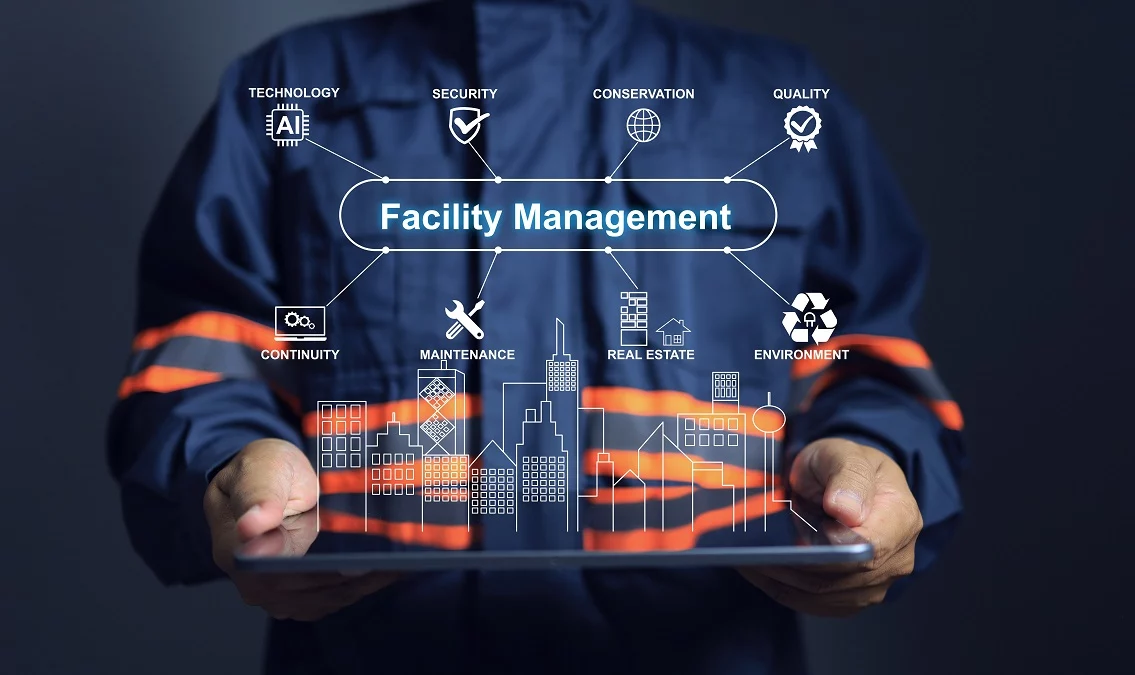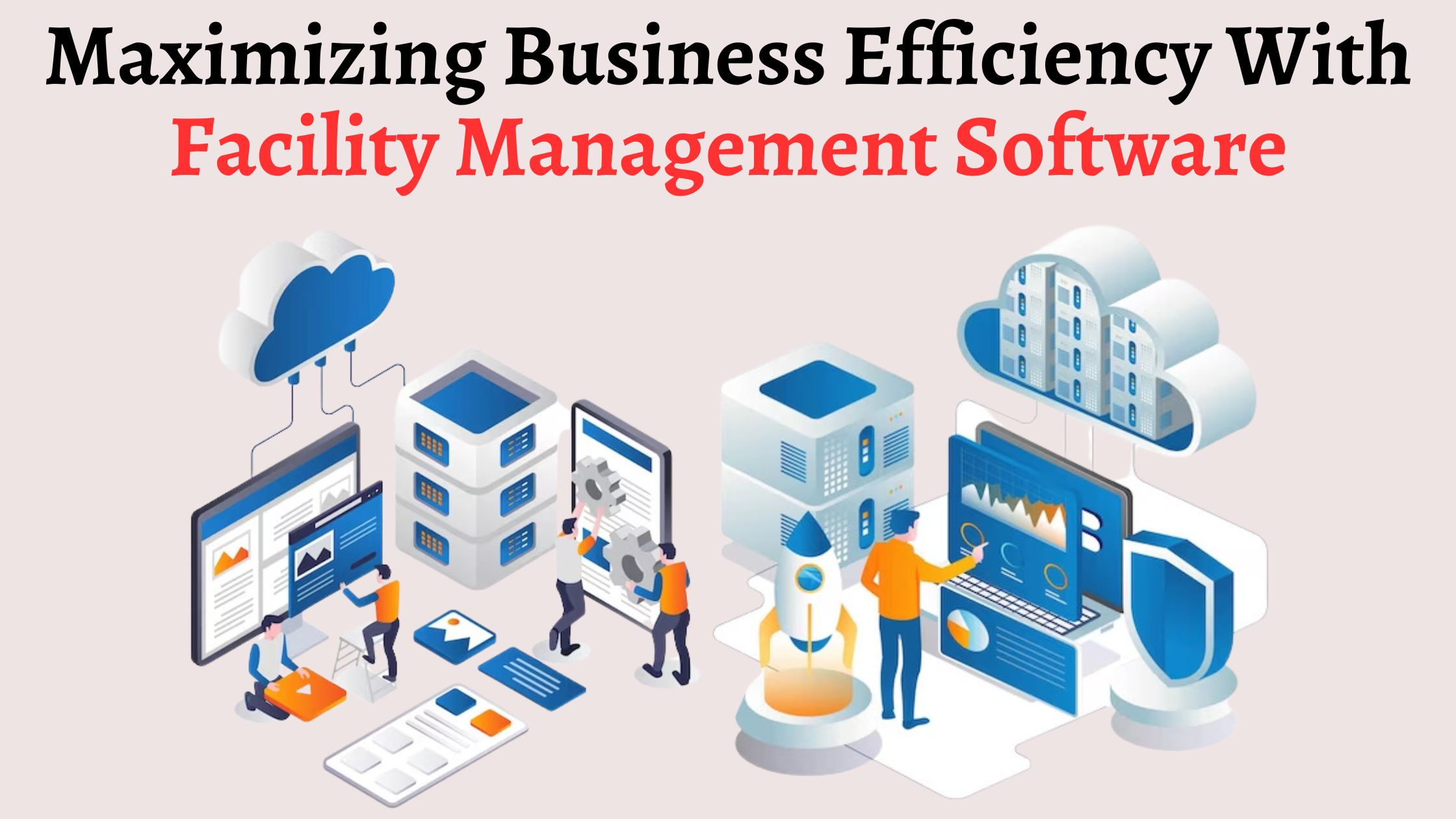Total Facility Management Explained: A Guide for Business Owners
Total Facility Management Explained: A Guide for Business Owners
Blog Article
Why Total Facility Management Is Necessary for Service Success
Total Facility Management (TFM) works as a foundation for business success by integrating varied operational aspects such as upkeep, area utilization, and safety and security steps. This integration not only boosts efficiency yet likewise aligns facility management with overarching organizational purposes. As services browse a competitive landscape, recognizing the diverse advantages of TFM can be critical in driving price efficiency and enhancing employee efficiency. However, the ramifications of adopting TFM prolong much beyond instant functional gains, raising important concerns concerning its long-term influence on business durability and competition - Total Facility Management. What exists beneath this necessary framework?
Comprehending Total Facility Management
Total Facility Management (TFM) encompasses a thorough technique to managing a company's structures and associated services to ensure optimal functionality, safety, and effectiveness. TFM integrates various disciplines, including upkeep, operations, space management, and security protocols, to create a cohesive structure that sustains a company's core goals.
At its core, TFM intends to simplify the procedures associated with facility management, reducing redundancies and enhancing solution shipment. This approach involves the control of tasks associated with residential or commercial property management, such as repairs, cleansing, and energy management, to cultivate an efficient setting for stakeholders and staff members alike. TFM likewise stresses the value of carrying out best techniques and ingenious innovations to improve solution top quality and lower operational expenses.
By straightening facility management tasks with organizational objectives, TFM boosts overall efficiency while making certain compliance with wellness, safety and security, and environmental guidelines. Hence, TFM serves not only as a logistical feature but likewise as a calculated property, contributing to an organization's lasting sustainability and growth.
Secret Advantages of TFM
Leveraging a thorough method, companies that apply Total Facility Management (TFM) unlock a myriad of advantages that add to overall company success. One of the primary benefits of TFM is the enhancement of functional effectiveness. By consolidating facility solutions under a unified management structure, companies can streamline processes, minimize redundancies, and enhance interaction throughout departments.
In addition, TFM advertises an aggressive upkeep approach, which minimizes downtime and extends the lifespan of facilitiess and equipment (Total Facility Management). This aggressive strategy not only enhances efficiency however likewise promotes a much safer working atmosphere, eventually causing greater employee fulfillment and retention prices
Furthermore, TFM assists in much better resource allocation by offering insights right into facility efficiency metrics. Organizations can identify areas for renovation, permitting them to make enlightened decisions that align with their tactical goals.
TFM and Price Effectiveness
Achieving cost performance is a basic goal for organizations, and Total Facility Management (TFM) plays a pivotal duty in this venture - Total Facility Management. By integrating various facility services under a solitary management structure, TFM makes it possible for organizations to streamline procedures and minimize redundancies. This holistic approach leads to significant expense savings, as it removes the requirement for multiple suppliers and streamlines procurement procedures
Furthermore, TFM fosters proactive upkeep methods, which minimize the threat of expensive repair work and downtime. By focusing on safety nets, companies can prolong the lifespan of their possessions and decrease unanticipated expenditures. In addition, TFM incorporates power management techniques, which can drastically reduce utility expenses through efficient source utilization.
The centralization of information and analytics within TFM allows organizations to make informed financial decisions. By recognizing trends and areas for renovation, TFM enables tailored approaches that even more improve price management. The scalability of TFM solutions guarantees that as companies expand, their facility management techniques stay reliable and aligned with monetary objectives.
Enhancing Staff Member Productivity
A well-managed facility can considerably improve staff member productivity by developing a find helpful job atmosphere. Efficient Total Facility Management (TFM) makes sure that all elements of the office-- from lights and temperature to tidiness and security-- are optimized. When staff members operate in a room that is comfy and well-maintained, they are more probable to concentrate on their jobs, leading to higher result and task contentment.
Additionally, TFM can improve cooperation with the critical style of common areas, encouraging synergy and development. By investing in the best sources and innovation, companies can help with seamless interaction and simplify process, even more enhancing performance. Routine maintenance and timely reactions to facility issues avoid disturbances that can or else prevent performance.
Furthermore, a healthy and balanced and secure workplace, sustained by TFM methods, reduces important link absenteeism and advertises health, straight associating with boosted productivity degrees. Ultimately, focusing on facility management is an investment not only in physical assets but likewise in the labor force itself. By cultivating a setting that supports staff member requirements and choices, companies can cultivate a much more involved and effective labor force, driving total success and affordable advantage.

Future Trends in TFM
Welcoming technological improvements is readied to improve the landscape of Total Facility Management (TFM) in the coming years. As the demand for efficiency and sustainability increases, TFM will increasingly embrace smart building modern technologies, integrating Web of Things (IoT) gadgets to check and take care of facility procedures additional resources in real-time. This change will allow proactive upkeep, significantly minimizing operational expenses and improving solution delivery.

Sustainability stays an important focus, with TFM professionals expected to focus on environmentally friendly practices. This consists of utilizing renewable energy sources and enhancing waste management systems to decrease the carbon footprint of facilitiess.
Remote management abilities will certainly additionally be increased, enabling facility managers to manage operations from virtually anywhere. This adaptability will certainly come to be crucial as organizations adapt to crossbreed job versions. In summary, the future of TFM is positioned for improvement through innovation, sustainability, and improved operational methods, guaranteeing businesses stay competitive in a developing landscape.
Conclusion
By integrating various functional functions, TFM enhances performance and lines up facility management with business objectives. As organizations progressively embrace ingenious modern technologies and lasting practices, the significance of TFM will proceed to grow, making sure long-lasting functional performance and competition in a progressing marketplace.

Report this page